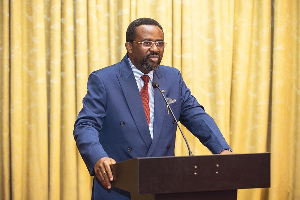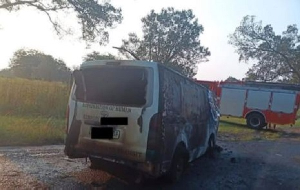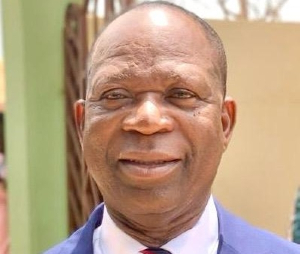The past 72-hours have been characterized by moments of intense reflection for me, from my 8-hour stay at the Supreme Court/New Court Complex on Wednesday to visiting the court on Thursday for a wreath laying ceremony as well as a memorial service at the Christ the King Parish as part of activities marking the 34th anniversary of the murder of three justices of the High Court.
Kierkegaard Soren couldn’t have been wrong when he stated that, “Life can only be understood backwards; but it must be lived forwards.”
After 72 long hours, a statement from the Ghana Bar Association set me thinking about this: why don’t the judges kill? Sorry, cut people to their size, harsher? Ok, let’s say put people in their place or better still remind them how sacred our Judges are. No matter how I try to put across what I feel Judges must reinforce, I know we all do, in our inner most self, appreciate what and how they must do that.
Wednesday June 29, 9am New Court Complex, Anthony Yeboah rules Wednesday was definitely not the first time I had paid a visit to the courts; I had been there on previous occasions to report for Joy News.
Even before I stepped out of University, I was doing same for Radio Univers, not the same courts, but at the student court. Back then, I observed students who were acting as counsels literally shut down and asked to behave by colleagues who were also at the same faculty of law with them (Colleagues who acted as Justices in the student courts).
I have never doubted the power of Judges and so I quickly put my phone on silent mode when I entered the court room and realized that Justice Anthony Yeboah had started reading his judgment.
He concluded and took brief comments from counsels and called the next case.
Same Day, 10 am Supreme Court
I dashed to the Supreme Court after Justice Anthony Yeboah’s ruling on the interim order. My focus was not on a court room this time around, but on the Supreme Court’s registry. The Supreme Court had earlier ordered the Electoral Commission to furnish the courts with a list of all who registered with the National Health Insurance cards. I wasn’t the only reporter at the premises; almost all major media houses in the capital had representation. I took an advantageous position together with my camera man and waited patiently for the EC team to arrive. It was a long wait that ended at 5pm.
Thursday, June 30, 8:45am Supreme Court
While waiting at the Supreme Court on Wednesday, I noticed artisans busily working at the forecourt. I struggled to make out why they were cleaning the inscriptions on the 3 busts at the forecourt. I got to work on Thursday and was told to rush there for a wreath laying ceremony in remembrance of 3 High Court Judges. A bit on the three; it was announced on July 1, 1982 that the 3 had been abducted during the curfew hours of June 30, 1982 and later confirmed that they had been brutally and savagely murdered on the night of their abduction.
They have since gone down in history as the martyrs of the rule of law with their monuments standing at the forecourt of the Supreme Court. The church service held at the Christ the King parish was no different from the wreath laying in ceremony in terms of the mood of members of the Bar; solemn and one of reflection.
The Chief Justice, Her Ladyship Mrs Georgina Theodora Woode, Mr Benson Nutsukpui (National President, Ghana Bar Association) and MrBanahenePokuSarkodee (son of the late Justice Fred PokuSarkodee) who had laid wreath on behalf of the Judiciary, Ghana Bar Association and bereaved families had all followed up and were seated at the church, which is interestingly few meters away from the square where former President Rawlings and others annually celebrate June 4.
The GBA chose that day to condemn certain forms of criticisms against the Judiciary; Presdent Benson Nutsukpui in his speech said “it is absolutely unacceptable for these criticisms to be rendered in language that is vituperative, sensational and purely abusive with the primary aim of inciting public disaffection of our Judges and to undermine the integrity of the judicial system”.
The GBA was called into action less than 24 hours later; what they had condemned is reported to have reared its ugly head once more. The statement signed by their President revealed that Alistair Nelson and Godwin Ako Gunn radio Panelist, made threats of harm or of death to Supreme Court Judges.
The two are reported to have drawn parallels from the martyrs day (they are alleged to have commented on the eve of the day) adding that they could identify the homes of the judges of the court and visit them with violence. This came to me as a pill too hard to swallow; if the statement attributed to the two is indeed true, it as an affront to the freedom of speech. Such “senseless” criticisms have the potential to only incite people against the Judges. It gives people a reason to feel the Judges are people we can easily castigate and run in the mud like people are gradually doing on a daily basis to those in authority, mostly politicians.
“Casting insinuations, innuendos, castigating the character of honest citizens, it is wrong , it is not in the interest of our country because it is those kind of behavior that incited those who abducted the Judges”, words of veteran member of the Bar, Sam Okudzeto as I interviewed him after the memorial service had ended.
It is important for all to understand how crucial Judges are. It is worthwhile to add that their authority is not in doubt in the minds of Ghanaians. You should see the silence in court as Justice Anthony Yeboahdelievered his judgment. Even the response of counsels when he was done is worth noting, both those who it favored and those it didn’t then showed respect in a manner one could not help but notice.
The look on the Electoral Commission’s official who submitted the list at the court registry is still fresh in my mind. He looked “hot” like we say in local jargon. The Apex court had given an order, the Commission whose leaders (Dr Afari Djan to Mrs Charlotte Osei) have over the years gained notoriety for being adamant, telling people to head to court if they feel they have a strong case and reminding all that “its our logo, we like it and we will use it”, had no other choice than to work to beat the deadline like school kids obeying the instructions of the teacher most known to crack the whip.
Why will people abduct and kill Justices, certainly to stop them from executing their powers which we all know cant be stopped in any legal way unless people senselessly abduct and kill them. We all, trust me, fear their powers, but like Atubiga and Sir John we often in moments of insanity, act as though we don’t really know what they represent and what they are capable of doing.
But hey, when they call us, to appear before their seat of truth and justice, we are all put in out rightful place, a place where we must all be, silent and respectful, even when we disagree, we must do it in a certain manner. They are persons who act more or less as representatives of God on earth, their role ensuring that we don’t stab people when we disagree with them but rather head to them to tell them our story with the hope that they will agree with us.
Investigative Journalist AnasAremyawAnas reminded us of how some of them become stooges of pipers who call the tune of justice once they are handed a goat in such cases. That is an excess, that can in no way permit any individual including those with the benefit of a microphone to create the impression that people can hurl insults and threaten Justices at will. It’s high time a good number of Justices take a cue from Justice Atuguba and crack the whip of contempt especially in instances when people run them down while commenting on cases they are hearing. They must put them in their place; kill that spirit in them if not them (which I don’t subscribe to) such that all will understand that the Judiciary is an important institution that we cannot run down.
We must respect our Justices and the court and the Higher court that Gandhi tells us exists;
“There is a higher court than courts of Justice and that is the court of conscience. It supersedes all other courts.”
This must be our guide.
Opinions of Saturday, 2 July 2016
Columnist: Joseph Ackah-Blay













